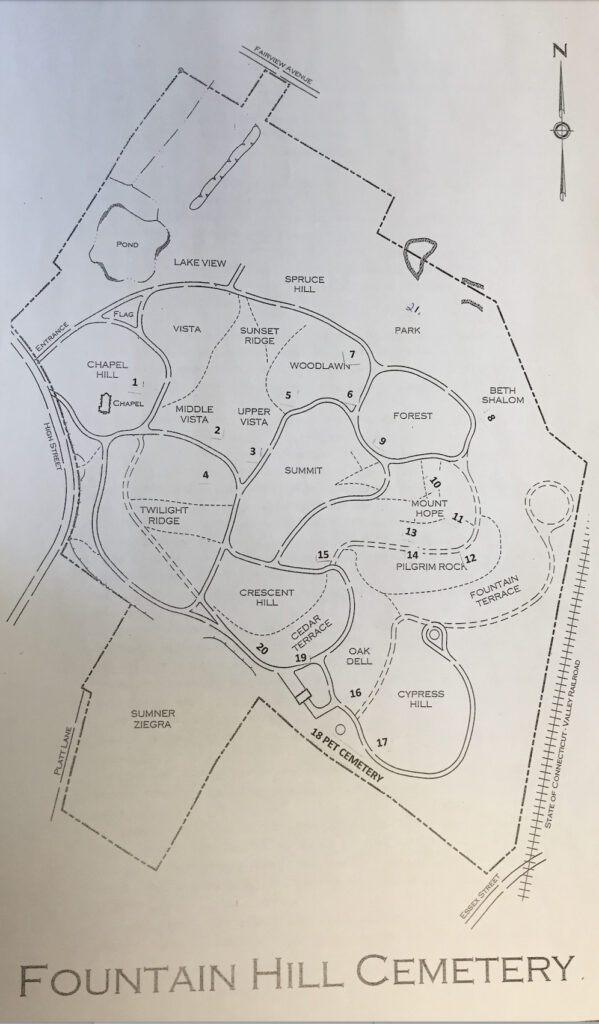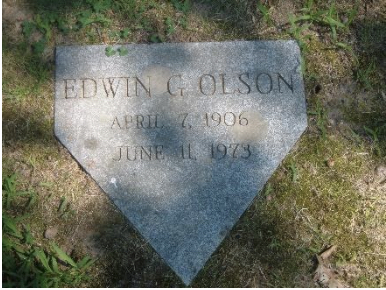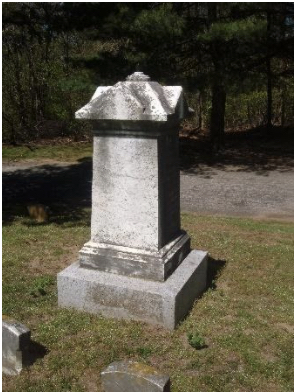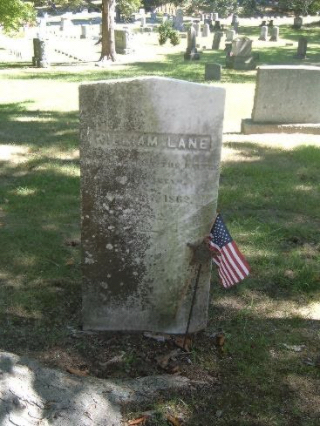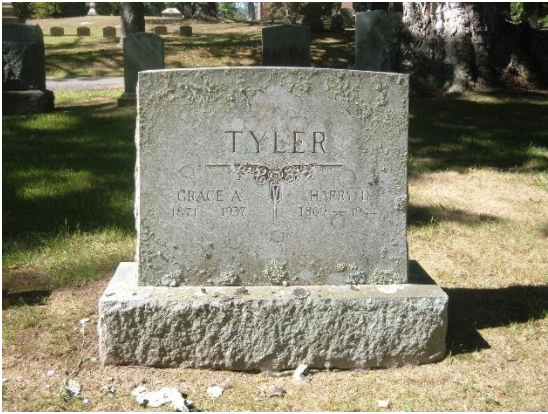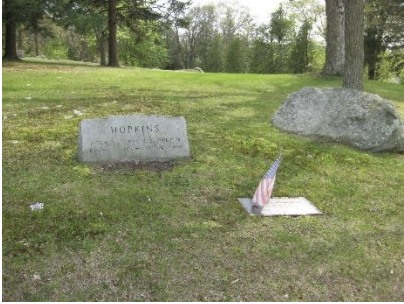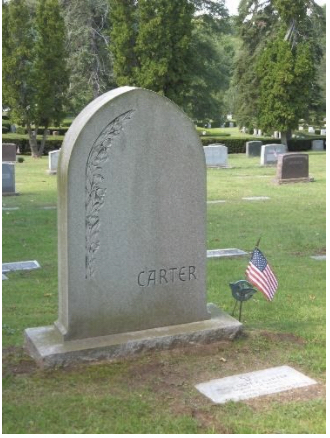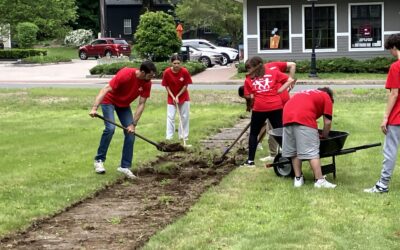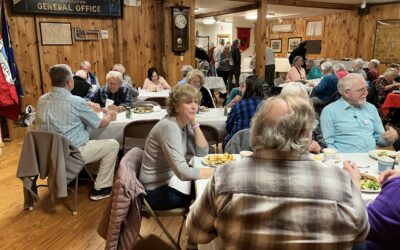Week 2: George Read & Fountain Hill Cemetery Hunt
Your challenge this week is to find the man known as Deep River’s “founding Father,” George Read. Find him at the top of the hill in Fountain Hill Cemetery. The granite obelisk marks the center of the family plot. (Hint, it’s by the flag pole.#11 on the map below)
George Read did not discover or create the town but he was born here. George was an entrepreneur. He had a vision of what this tiny village could be and worked hard to make that vision a reality. He was a businessman, involved primarily in the ivory trade, first with comb manufacturing and then with producing ivory keyboards for pianos. He partnered with the Pratt Brothers to create Pratt, Read & Company, which became the largest factory in town employing 160 workers.
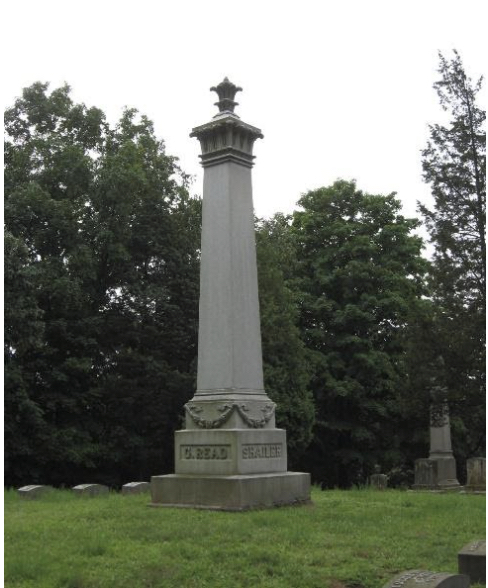
George was a very religious man and is said to have started the Deep River Baptist Church in his parlor. Certainly, the early meetings to plan and establish the church began in his parlor. He was also influential in establishing the Deep River National Bank. He was a founding member of Fountain Hill Cemetery Association, the Anti-Slavery Association in Deep River, and served as a station master on the Underground Railroad.
George was a very religious man and is said to have started the Deep River Baptist Church in his parlor. Certainly, the early meetings to plan and establish the church began in his parlor. He was also influential in establishing the Deep River National Bank. He was a founding member of Fountain Hill Cemetery Association, the Anti-Slavery Association in Deep River, and served as a station master on the Underground Railroad.
The Deep River Historical Society has an oil painting of him at the Stone House. Stop by to see him.
While you at the cemetery take a walk around to visit some of the amazing people who are buried there.
- Down the hill from the Read Monument is the very unique monument of Sol LeWitt. Solomon Le Witt was born in 1928 was one of the most visual artists of the late 20th century. His signature art in primary colors can be seen on walls in museums and public spaces around the world. He is an American artist linked to various art movements including Conceptual art and Minimalism. He rose to fame in the 1960s with his wall drawings, “structures”, as he called them. He was prolific in a wide range of media. His work can be seen on the walls of the Wadsworth Atheneum in Hartford and the Congregation Beth Shalom Rodfe Zedek in Chester, CT. He designed his monument as a black cube and it is etched with geometrical designs on the top. He died in 2003 at the age of 79. (# 8 on the map)
- Walking downhill again and to your left near the trees see if you can locate Edwin Olson’s grave. His footstone is home plate. Ed loved baseball and his favorite position to play was catcher. (#21 on the map)
- Walking north just a short way you will find Obadiah Dickinson’s monument. He lived in Kirtland Street and was an artist. Actually, the first man to make a living as an artist in this area. His was displayed and sold in the Brooklyn Art Gallery in NY. Many of his portraits are displayed at the Stone House. (#7 on the map)
- Walking west to the BIG oak tree you will find the grave of William Lane who died in the Battle of Antietam in 1862. Right behind him is Cap Harry Tyler. Harry was the bank guard at the Deep River Savings Bank who shot XYZ. XYZ was one of four men trying to rob the bank that night in 1899. Harry was surrounded and outnumbered but still managed to protect the bank. He was considered a hero by the people of the town but received death threats for many years after the incident. People who knew him in his later years called him the “Lollipop man.” On his daily walks around town, he carried a basket filled with lollipops that he gave to the children he met. What they didn’t know is that he carried a gun in the bottom of the basket, just in case. (# 9 on the map)
- XYZ’s grave is the most frequently visited grave in the whole cemetery of more than 6,000 people. You will find him in the back of the cemetery near the Pet Cemetery.
- But if you are a baseball lover you probably would rather stop to see Paul Hopkins who as a rookie of the Washington Senators 1927 pitched to Babe Ruth in his very first game as a professional ballplayer. He made history that day as Babe hit his 59th home run of the season and creating a new record. (#4 on the map)
- Or maybe stop to see Oliver Ray Cater, the only man in Deep River who can say he was killed by an elephant. See any elephants around town lately? Oliver worked at the Pratt, Read factory as an ivory cutter. He contracted anthrax from the tusk he was working on and died in a matter of a few days. #3 on the map)
Remember to post your pictures on Facebook and tag Deep River Historical Society for a prize! Happy Hunting!!!
